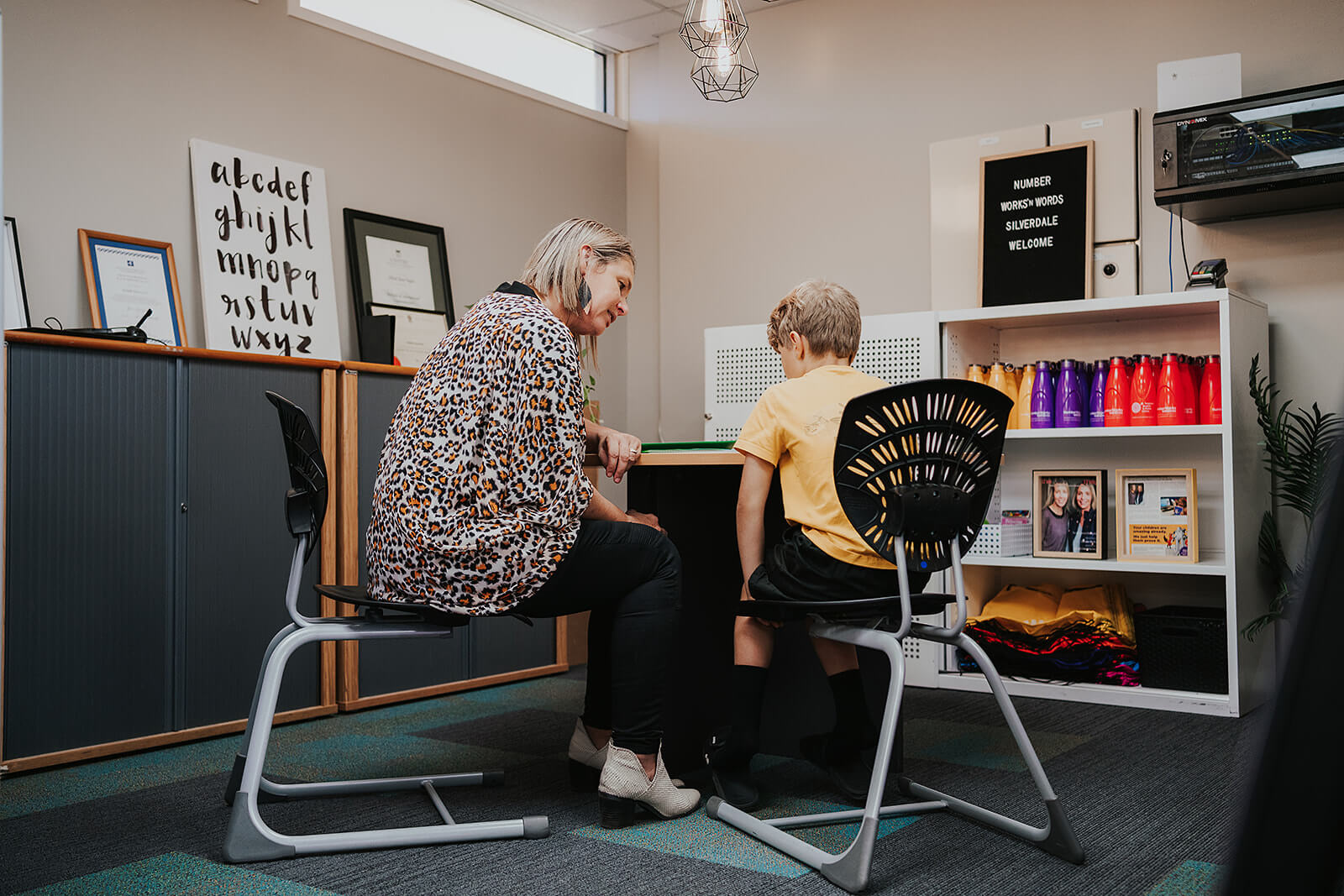Good Role Models for Kids
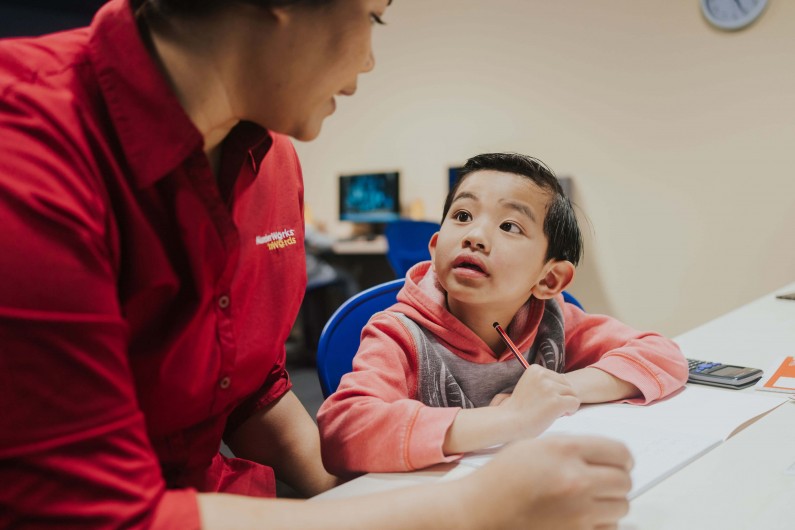
Young learners draw inspiration from diverse role models and adults, influencing their behaviour, relationships, and decision-making. Parents, teachers, and peers often serve as crucial role models for many children, but some also find influence in celebrities, athletes, and fictional characters from television or movies.
The presence of positive role models plays a pivotal role in the development of students. These figures inspire motivation, instil positive behaviour, shape life decisions, and encourage the pursuit of goals. This blog post delves into the significance of having effective role models for students.
Positive Role Models
Exemplary role models play a crucial role in guiding individuals through their journey of personal development and advancement. These influential figures, ranging from parents and teachers to community leaders and admired personalities, wield significant influence in shaping the values, attitudes and aspirations of individuals, particularly the younger generation.
By embodying virtues such as integrity, resilience, and compassion, positive role models ignite a drive for excellence and a commitment to contributing positively to society. Their impact goes beyond mere accomplishments, shaping the development of robust moral compasses and instilling the belief that challenges can be surmounted through diligence and perseverance.
In a world brimming with diverse influences, the presence and example of positive role models become a beacon, illuminating the path toward character development, self-discovery, self-care, and the realisation of one's full potential.
Children Are Easily Influenced
Whether it's a video game or social media, our children are influenced by whatever captures their interest. The impact can be either positive or negative, underscoring the importance of providing our children with positive role models. While athletes and celebrities are often the first that come to mind, the foundation for good role models starts at home.
Parents play a pivotal role in shaping their children's learning and modelling of behaviour. This emphasises the need for parents to serve as exemplary figures, setting a positive example for their children.
By actively demonstrating constructive actions, practising appropriate behaviour, and embodying positive values, parents can become influential role models, contributing to the development of their children into the best versions of themselves.
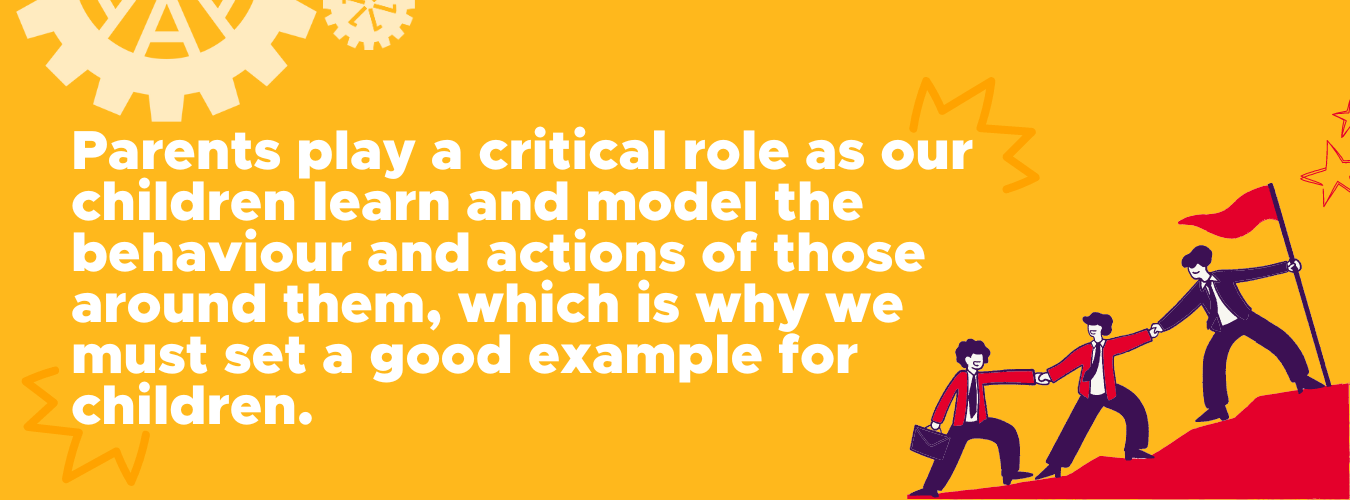
Inspiration and Motivation
Role models possess the passion and ability to inspire, motivate and encourage young learners to aspire to greatness. Students often seek guidance from the adults in their lives as well as the celebrities they admire.
Throughout their learning journey, students will inevitably encounter challenges. Therefore, it is crucial for good role models to demonstrate resilience, the ability to overcome obstacles and to stay motivated. Good role models exemplify that no obstacle is too formidable to conquer.
They share both struggles and successes, just like everyone else, serving as a testament to the idea that hard work and determination can lead to success. The influence of a good role model inspires students to exert the same effort and dedication required to ascend the ladder of success.
Instil Good Behaviour and Habits
Students, being highly impressionable, tend to model their behaviour after role models and the adults in their vicinity. For those who learn through mimicry and emulation, it is crucial to ensure that our children have the opportunity to encounter positive role models. This exposure aids in their development, fostering the instillation of good habits and behaviours from an early age.
Role models play a pivotal role in the development of young learners. Children naturally gravitate towards emulating the actions and values of their role models. When exposed to inspiring figures or individuals exhibiting positive behaviour, children tend to imitate and absorb these behaviours. Role models who consistently demonstrate good behaviour and positive habits contribute significantly to helping students incorporate these traits into their own lives.
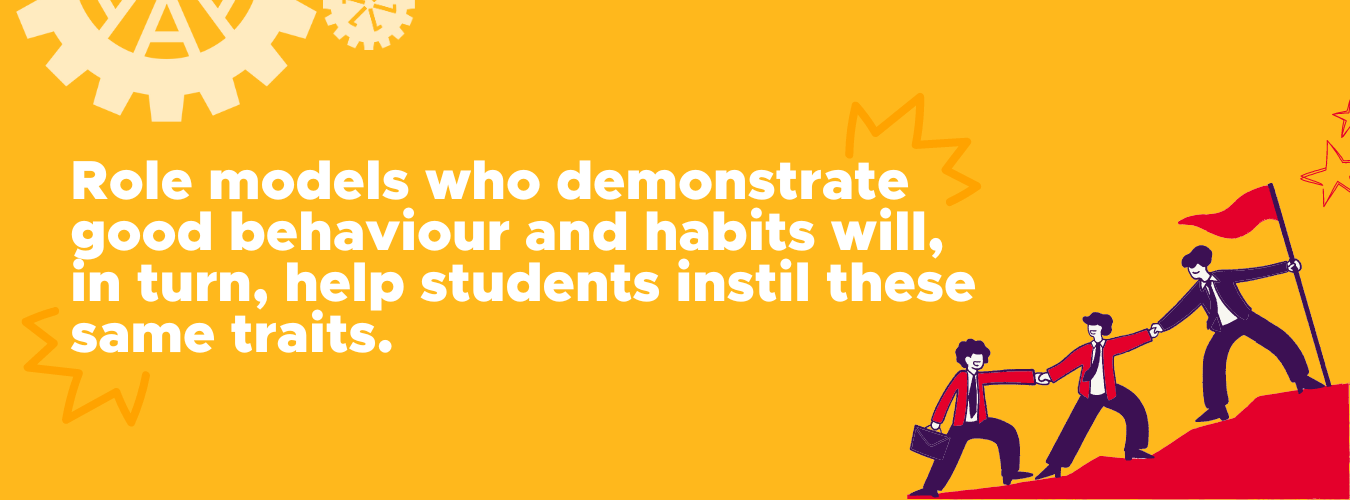
Achieving Goals
Students harbour a multitude of goals on their learning journey, yet the path can be fraught with distractions and challenges that may undermine their confidence, particularly after setbacks. Role models serve as a blueprint for success, inspiring and motivating students to set and achieve ambitious goals.
Effective role models empower and motivate students, guiding them in the diligent pursuit of their goals and aspirations. By modelling a pathway to success, role models also ensure that students comprehend and recognise the inevitability of hardships and failures along the way. When students look up to these role models, they not only adhere to their principles but also find encouragement to establish and accomplish their own goals.
Lessons Beyond the Classroom
Above and beyond academic accomplishments, positive role models play a crucial role in shaping the character development of young learners. Teachers, being prominent role models in the educational setting, extend their impact beyond knowledge dissemination. They mould students' attitudes, work ethic and interpersonal skills.
By embodying positive qualities such as empathy, resilience, and a genuine passion for learning, educators become wellsprings of inspiration, contributing to the holistic development of students. The positive influence of these role models transcends the boundaries of the curriculum, instilling essential values and qualities that complement academic success. This approach helps create well-rounded individuals who are prepared for the challenges awaiting them in life beyond the classroom.
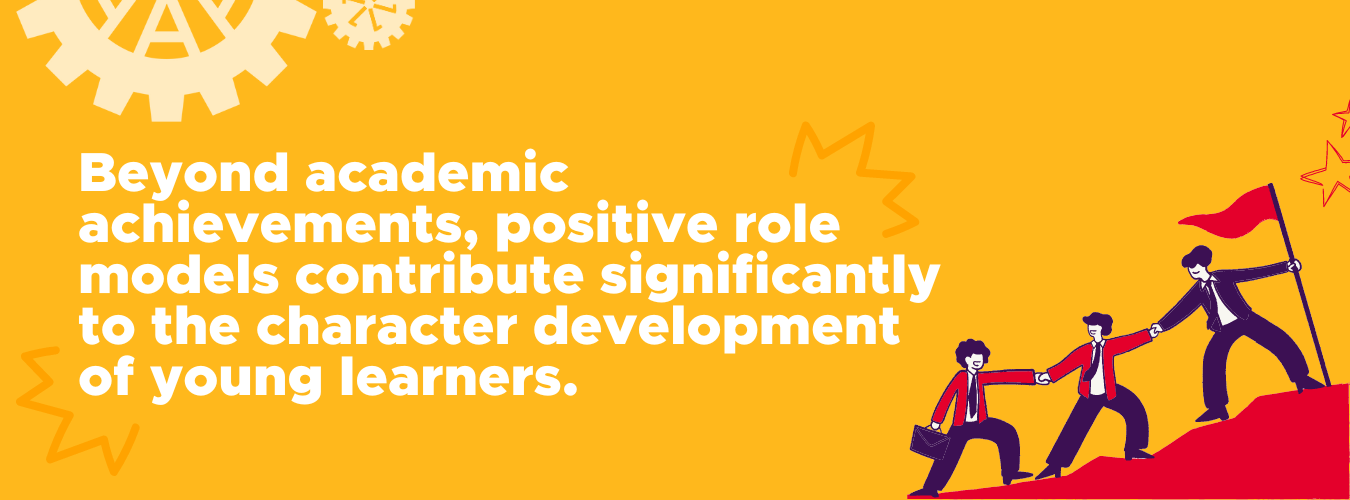
Community and Peer Role Models
Although parents, teachers, and celebrities commonly assume the spotlight as role models, the impact of peers and community members should not be overlooked. Positive role models within the community contribute to a collective sense of responsibility for cultivating a nurturing environment for young learners.
Peers who demonstrate kindness, inclusivity, and a dedication to positive values can wield a substantial and positive influence on the social development of young individuals, as well as other family members and students. By fostering a sense of unity and shared values within the family and community, a network of positive influences and role models emerges. This reinforces the significance of collaboration and mutual support in working towards common goals.
Cultivating a Growth Mindset
Positive role models play a pivotal role in nurturing a growth mindset among students. In any educational journey, challenges and setbacks are unavoidable. Role models serve as exemplars of how to approach obstacles with a positive and resilient mindset.
Through the sharing of personal experiences involving adversity and the conquering of hurdles, role models inspire students to perceive challenges as opportunities for growth rather than insurmountable barriers. This shift in mindset empowers students to embrace difficulties, learn from failures, and persist in the face of adversity.

The guidance provided by positive role models not only contributes to academic success but also cultivates a mindset that encourages continuous learning and self-improvement. As educators at NumberWorks’nWords, we consistently lead by example, recognising the significant responsibility of setting a positive precedent for our students and influencing them beneficially.
Should your child require additional support with their learning - tutoring with NumberWorks’nWords can be instrumental. Our individualised maths and English tutoring programs help students overcome challenges and strive to achieve their learning goals. To learn more, get in touch with your local centre, or book a free assessment to help your child today!




